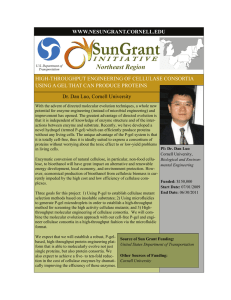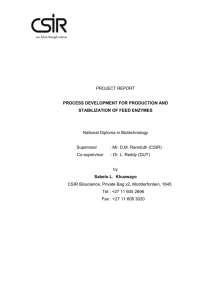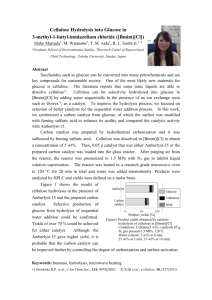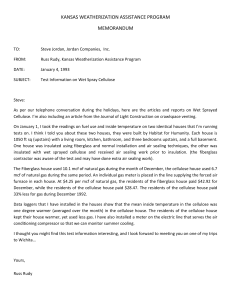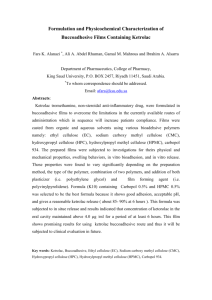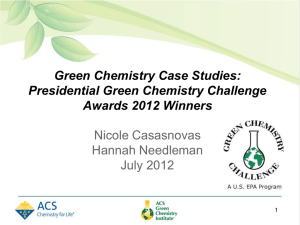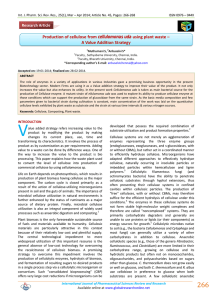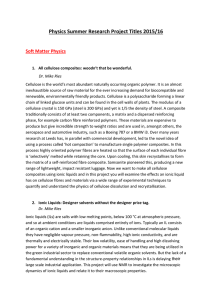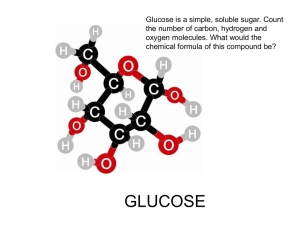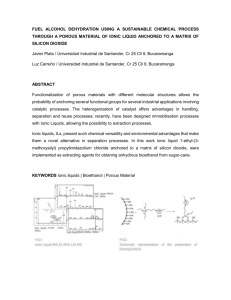On the Chemistry of the Resveratrol Diastereomers
advertisement
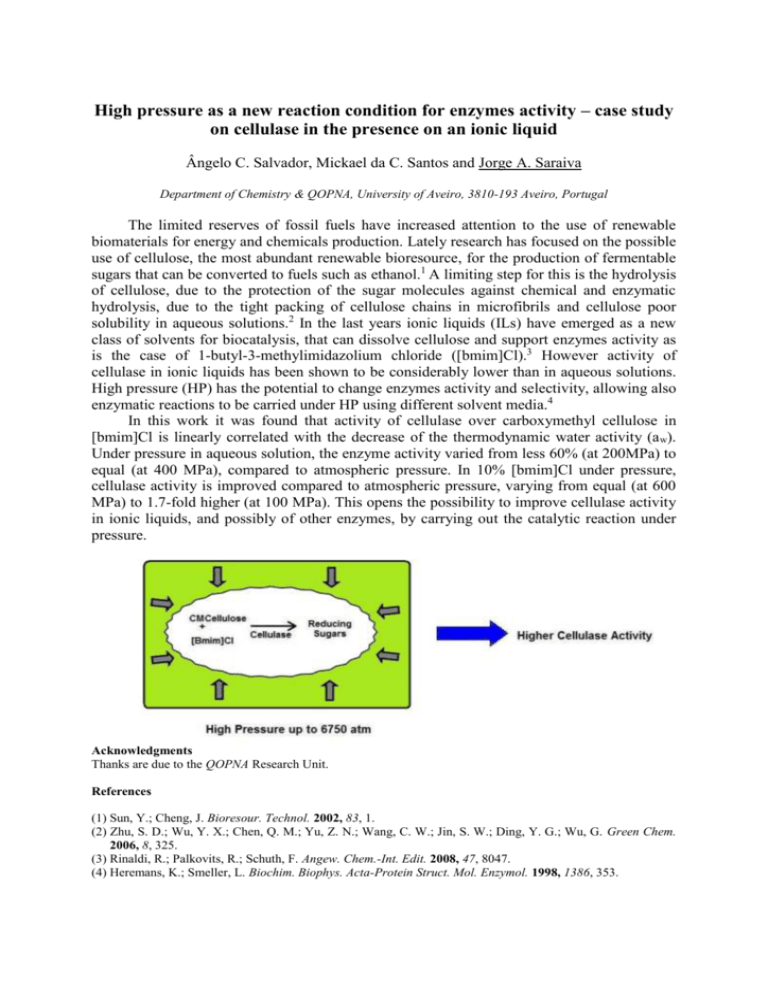
High pressure as a new reaction condition for enzymes activity – case study on cellulase in the presence on an ionic liquid Ângelo C. Salvador, Mickael da C. Santos and Jorge A. Saraiva Department of Chemistry & QOPNA, University of Aveiro, 3810-193 Aveiro, Portugal The limited reserves of fossil fuels have increased attention to the use of renewable biomaterials for energy and chemicals production. Lately research has focused on the possible use of cellulose, the most abundant renewable bioresource, for the production of fermentable sugars that can be converted to fuels such as ethanol.1 A limiting step for this is the hydrolysis of cellulose, due to the protection of the sugar molecules against chemical and enzymatic hydrolysis, due to the tight packing of cellulose chains in microfibrils and cellulose poor solubility in aqueous solutions.2 In the last years ionic liquids (ILs) have emerged as a new class of solvents for biocatalysis, that can dissolve cellulose and support enzymes activity as is the case of 1-butyl-3-methylimidazolium chloride ([bmim]Cl).3 However activity of cellulase in ionic liquids has been shown to be considerably lower than in aqueous solutions. High pressure (HP) has the potential to change enzymes activity and selectivity, allowing also enzymatic reactions to be carried under HP using different solvent media.4 In this work it was found that activity of cellulase over carboxymethyl cellulose in [bmim]Cl is linearly correlated with the decrease of the thermodynamic water activity (a w). Under pressure in aqueous solution, the enzyme activity varied from less 60% (at 200MPa) to equal (at 400 MPa), compared to atmospheric pressure. In 10% [bmim]Cl under pressure, cellulase activity is improved compared to atmospheric pressure, varying from equal (at 600 MPa) to 1.7-fold higher (at 100 MPa). This opens the possibility to improve cellulase activity in ionic liquids, and possibly of other enzymes, by carrying out the catalytic reaction under pressure. Acknowledgments Thanks are due to the QOPNA Research Unit. References (1) Sun, Y.; Cheng, J. Bioresour. Technol. 2002, 83, 1. (2) Zhu, S. D.; Wu, Y. X.; Chen, Q. M.; Yu, Z. N.; Wang, C. W.; Jin, S. W.; Ding, Y. G.; Wu, G. Green Chem. 2006, 8, 325. (3) Rinaldi, R.; Palkovits, R.; Schuth, F. Angew. Chem.-Int. Edit. 2008, 47, 8047. (4) Heremans, K.; Smeller, L. Biochim. Biophys. Acta-Protein Struct. Mol. Enzymol. 1998, 1386, 353.
